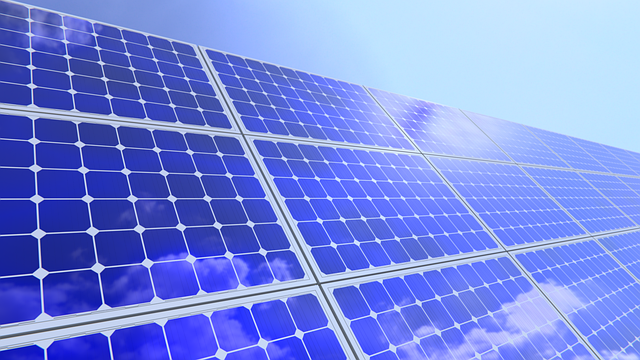On-Grid Rooftop Installation: Explanation
On-grid rooftop installation is a popular solar energy solution that is rapidly gaining traction in the renewable energy sector. As the world shifts towards more sustainable energy sources, understanding the concept and benefits of on-grid rooftop installations becomes vital. In this blog, we will delve into the details of on-grid rooftop installations, exploring how they work, their advantages, and their role in shaping a greener future.
What is On-Grid Rooftop Installation?
On-grid rooftop installation refers to the process of harnessing solar energy through the installation of solar panels on rooftops and connecting them to the existing power grid. Unlike off-grid systems, where the generated solar energy is stored in batteries for later use, on-grid installations directly feed surplus energy into the grid for distribution to other consumers.
This system operates in conjunction with the local electric utility, allowing you to utilize both solar power and grid power seamlessly. On-grid rooftop installations are particularly beneficial in areas where electricity rates are high, as they can effectively reduce monthly utility bills and promote energy self-sufficiency.
How Does On-Grid Rooftop Installation Work?
The functioning of an on-grid rooftop installation can be broken down into three main components:
1. Solar Panels: The installation begins with the mounting of solar panels on the rooftop. These panels consist of photovoltaic cells that convert sunlight into electricity through the photovoltaic effect. They are typically made from silicon-based materials and come in various sizes and efficiency levels.
2. Inverter: The solar panels generate direct current (DC) electricity, which needs to be converted into alternating current (AC) for compatibility with the grid and household appliances. This is where the inverter comes into play. It converts the DC electricity into AC electricity used by the grid and your home.
3. Grid Connection: Once the solar energy is converted into usable AC electricity, it is either directly consumed by your household or sent back to the grid. An electric meter measures the amount of electricity generated and fed into the grid while keeping track of the electricity consumed from the grid. This allows for the calculation of net metering, which determines the difference between the energy exported and imported, resulting in potential credits or payments on the electricity bills.
Advantages of On-Grid Rooftop Installation
1. Cost Savings: With on-grid rooftop installations, you can substantially reduce your monthly electricity bills. By generating your own solar energy and feeding excess energy to the grid, you become a net exporter, enabling you to earn credits or receive payments from the utility company. Over time, this can lead to significant cost savings and a quick return on investment.
2. Environmental Sustainability: On-grid rooftop installations play a vital role in reducing greenhouse gas emissions and combating climate change. By relying on solar energy, you reduce your reliance on fossil fuels, which are major contributors to environmental degradation. By making the switch, you contribute to a greener and more sustainable future.
3. Grid Stability: On-grid rooftop installations offer a unique advantage in terms of grid stability. During peak sunlight hours, these systems generate excess solar energy, which can be seamlessly fed into the grid. This helps balance the demand and supply gap, reducing strain on the grid and ensuring a more stable power supply for everyone connected to it.
4. Low Maintenance: On-grid rooftop installations have relatively low maintenance requirements. Solar panels are durable and built to withstand various weather conditions. Regular cleaning to remove dust or debris and periodic inspections ensure optimal performance. Additionally, inverters and meters may require occasional maintenance or firmware updates, but overall, the maintenance is minimal compared to other renewable energy options.
Conclusion
Elevate your energy independence with SolarClue®—your expert guide to on-grid rooftop solar installations. Our on-grid solutions empower homeowners and businesses to generate clean energy while remaining seamlessly connected to the grid. Enjoy reduced electricity bills, take advantage of net metering benefits, and contribute to a sustainable future. SolarClue® specializes in professional on-grid installations, offering tailored solutions for residential and commercial spaces. Explore the potential of solar power without compromising on reliability. Whether you’re aiming for significant savings or looking to make a positive environmental impact, SolarClue® ensures a smooth transition to on-grid solar. Start your journey towards a brighter, sustainable future with SolarClue®—your trusted partner in on-grid rooftop installations. Explore our range of solutions and make the smart choice for clean energy today!
Frequently Asked Questions
An on-grid system, also known as a grid-tied system, connects directly to the local utility grid. It allows you to generate solar power for your own use while remaining connected to the grid for additional electricity or during low sunlight periods.
Homeowners can reduce electricity bills by generating their own power and even earn credits by feeding excess energy back into the grid. SolarClue® specializes in seamless on-grid installations for residential spaces.
No, batteries are optional. An on-grid system relies on the grid for storage. SolarClue® offers battery solutions for backup power during grid outages.
Net metering credits homeowners for excess electricity produced, allowing them to offset future grid usage. SolarClue® assists in understanding and maximizing net metering benefits.
No, on-grid systems are designed to work in conjunction with the grid. SolarClue® recommends hybrid systems for those seeking partial independence during power outages.
On-grid systems can significantly reduce or eliminate electricity bills, especially during sunny periods. SolarClue® helps homeowners understand potential savings and return on investment.
Absolutely. SolarClue® specializes in commercial on-grid installations, enabling businesses to cut operational costs and contribute to sustainability.
Standard on-grid systems shut down during outages for safety reasons. SolarClue® offers hybrid solutions with backup capabilities to ensure power availability during emergencies.
On-grid systems are connected to the utility grid, while off-grid systems operate independently. SolarClue® provides both options, tailoring solutions to specific needs.
Yes, precise installation ensures safety and efficiency. SolarClue® offers professional installation services, ensuring optimal performance of on-grid solar systems.


